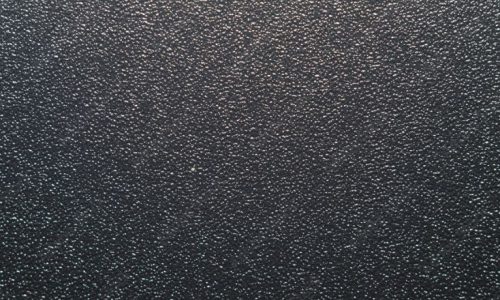
Introduction
Thermoplastics are widely used around the world for many different applications like window frames (which are often made from PVC or ABS), automotive components, or acrylic safety barriers. As a result, there is a continuous need to bond various thermoplastics to itself, other thermoplastics or to other dissimilar substrates including metals. Often, these thermoplastics require robust and adaptable joining methods, creating a high need for the use of structural adhesives. The specific thermoplastic focused here is the commonly used ABS (acrylonitrile butadiene styrene) and the selection of a quality ABS glue.
What is ABS and where is it used?
To start with, let’s cover what ABS is and understand its common uses: ABS stands for Acrylonitrile Butadiene Styrene. As the name suggests, ABS is made from three monomers: Acrylonitrile, butadiene, and styrene, a mixture of three different monomers. Each monomer contributes to the plastic’s fundamental properties. ABS can vary depending on how it is made and react to the starting monomers for each component.
Acrylonitrile offers plastic good thermal stability and good chemical resistance.
Butadiene provides the plastic with its toughness and good impact strength.
Styrene adds rigidity as well as a shiny finish to the plastic.
ABS is used in a wide variety of industries and applications, to name a few: Automotive dashboards, medical suppliers, toys, electronic assemblies, pipes and fittings, window frames.
The reason ABS is often a preferred choice compared to other thermoplastics is that ABS is much lighter when compared to other plastics. It also possesses good strength, good temperature resistance, and lastly, does not scratch easily. Overall, it is considered to be a very stable plastic.
With so many parts being made from ABS, it is often asked, “What plastic adhesives are best to structurally bond ABS? Which ABS plastic glue provides the properties required for a successful application?”
When bonding ABS, one of the most important considerations is the intended use for the joined (bonded/glued) part – “What will this joint need to survive its life expectancy?” It’s common to consider if a simple cyanoacrylate glue or plastic epoxy will suffice. However, before you turn to a cyanoacrylate adhesive or an epoxy glue for plastic, consider the time-tested, proven solutions that the Plexus brand of acrylic adhesives provides.
Why Use Plexus Acrylic Adhesives?
Plexus adhesives for acrylic are proven to function as strong, durable plastic glues that provide excellent structural bonds when bonding to many types of thermoplastics, including ABS. Unlike other ABS bonding technologies, Plexus adhesives typically require little to no surface preparation, depending on what you are bonding to the ABS. Plexus adhesives are very successful at permanently bonding surfaces in the toughest of conditions. This is because Plexus adhesives will interact and solvate to the plastic.
The solvation causes the Plexus adhesive to chemically and mechanically bond to the ABS plastic, providing superior joint strengths that typically exceed the strength of the ABS substrate itself. For an optimal bond, we recommend the plastic be free of oils, dust, or any other obvious contamination. With the Plexus brand, you don’t have to ask, “What is the strongest glue to use on plastic?” because we offer the strength your application needs.
There are a wide range of adhesives in the Plexus portfolio. Each adhesive differs by their primary characteristics, their intended usage, and the substrates they are designed to bond. Metal bonding to ABS, composites bonding to ABS, and other dissimilar substrates are all capabilities of Plexus. Each Plexus methyl methacrylate adhesive (acrylic based) creates a permanent, structural joint when bonding ABS. In addition, they provide the following benefits:
- Superior fatigue resistance
- High bond strengths
- Minimized stress cracking from stress concentration
- Excellent thixotropic and rheology properties (which allows for overhead and injectable applications)
- A wide range of operating temperatures
- Excellent resistance to environmental conditions
Conclusion
When choosing an adhesive for ABS bonding applications, Plexus acrylic adhesives are the perfect choice as they are proven in a variety of markets and applications. Whether you need glue for plastic to metal or ABS to ABS, Plexus adhesives are designed to adhere to the ABS with no or little surface preparations. When wanting to bond ABS, all the grades within the Plexus portfolio are suitable offering high bond strengths with superior properties.
For more information on our Plexus adhesives, please have a look at the Plexus selector charts in EMEA and North America.
Contact the Technical Services Department for more information on which Plexus adhesive is most suited for your application.
By: Elisabeth Baumann, Technical Service Lab Supervisor
Further reading: Thixotropy, Viscosity and Rheology … Oh my!, What is fixture time anyway?, and Is it strong enough?.
For more stories like this, follow ITW Performance Polymers on LinkedIn and sign up for enewsletter in our website footer.
ITW Performance Polymers is an international leader in structural adhesives, grouting and chocking compounds, and wear-resistant coatings and repair products. Contact us to learn more about these products and their applications.

